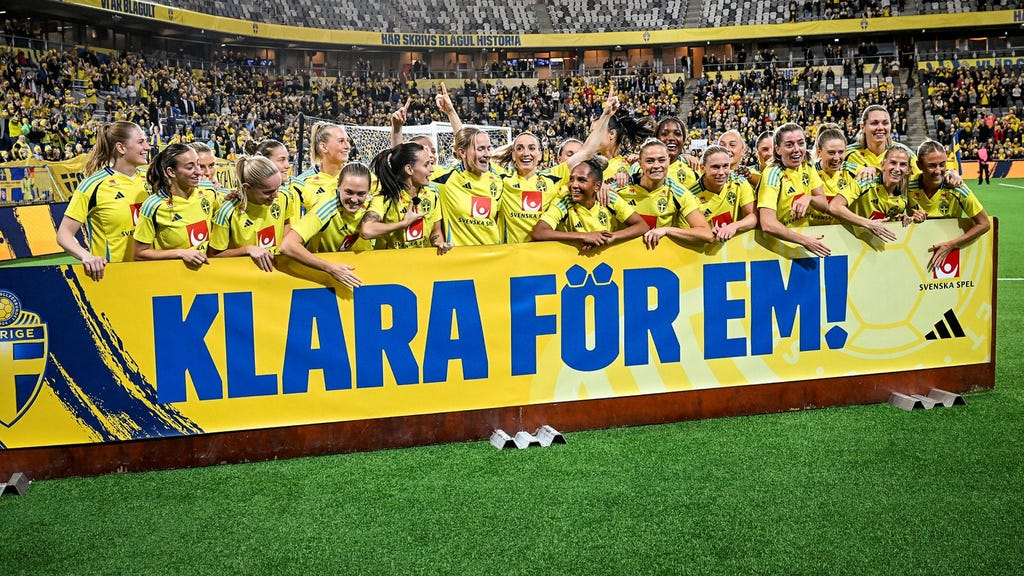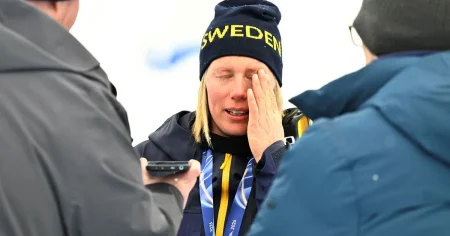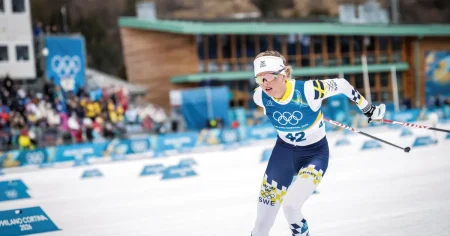The 2025 UEFA Women’s European Championship, set to take place in Switzerland, marks a significant leap forward in terms of financial recognition for women’s football. The total prize money pool for the tournament has been set at €41 million, equivalent to approximately 470 million Swedish kronor (SEK). This represents a staggering 156% increase compared to the €16 million awarded at the 2022 tournament hosted by England. This substantial increase underscores a growing commitment to closing the gender pay gap in football and recognizing the escalating value and popularity of the women’s game. The amplified financial stakes add another layer of excitement and incentive for participating nations.
The Swedish national team, having secured their qualification for the 2025 Euros earlier this year, stands to benefit significantly from this enhanced prize money allocation. A potential championship victory for Sweden could yield up to 58 million SEK. This figure dwarfs the roughly 20 million SEK England received for their triumphant campaign in 2022, a sum that included bonuses for winning all their group stage matches. The new prize structure ensures that even participation guarantees a substantial payout. Each qualified nation is set to receive approximately 20 million SEK simply for reaching the tournament finals, a significant baseline that provides financial stability and resources for development. This stands in stark contrast to previous tournaments where financial rewards were heavily skewed towards the ultimate winner.
The increased prize money isn’t just about rewarding success; it’s also about empowering the players who drive the sport forward. UEFA, for the first time, has mandated that 30-40% of the total prize money be earmarked specifically for the participating players. This landmark decision ensures that the athletes directly benefit from the growing financial prosperity of the women’s game, recognizing their crucial role in its success. This stipulation aims to provide greater financial security for female footballers, allowing them to invest in their careers and achieve greater professionalization of the sport. It also reflects a broader movement within football governance towards fairer player compensation and recognition of their contribution to the game’s overall value.
While the significant increase in prize money for the Women’s Euros is a momentous development, it also highlights the continuing disparity compared to the men’s game. The UEFA Men’s Euro 2024 in Germany boasted a total prize pool of €331 million (approximately 3.78 billion SEK), a figure that remained unchanged from the 2020 tournament. This substantial difference underscores the ongoing work required to achieve true pay parity in football. While the growth in the women’s game is undeniable and the increased investment is welcomed, the gap to the men’s game remains considerable.
The substantial increase in prize money for the 2025 Women’s Euros represents a significant step towards greater equity and recognition within football. It signifies a growing appreciation for the value and appeal of women’s football, and a commitment to fostering its continued growth and development. The increased financial incentives will undoubtedly elevate the competition, attract greater media attention, and inspire more young girls to pursue careers in football. This development sets a positive precedent for future tournaments and reinforces the message that women’s football is a force to be reckoned with, both on and off the pitch.
Beyond the purely financial implications, the increased prize money represents a powerful symbolic gesture, highlighting the growing momentum behind women’s football. The decision to earmark a portion of the funds directly for the players demonstrates a commitment to their well-being and professional development. This, coupled with the significant increase in overall prize money, sends a strong message to the world: women’s football is on the rise, and its value is finally being recognized. The 2025 UEFA Women’s European Championship in Switzerland is poised to be a watershed moment, not just for the participating teams and players, but for the future of the sport as a whole.














